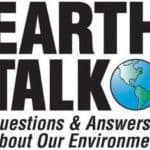
Gabe Castro-Root, EarthTalk.org.

Dear EarthTalk: Do wealthy people generate more pollution and/or carbon emissions than the less fortunate?
—George P., Greenwich, CT
In a word, yes. The richest 10 percent of humanity was responsible for 52 percent of global emissions between 1990 and 2015, according to a 2020 Oxfam report. The richest one percent alone produced 15 percent of global emissions during that time, more than double that of the entire poorest half of humanity. This phenomenon is called emissions inequality: Wealthier nations and individuals emit excessively large amounts of greenhouse gases, while poorer nations and individuals suffer the bulk of the consequences.
The result is that pollution is harming those least responsible—and least equipped to combat its effects—more severely than those who are most to blame. In the United States, this is partially a result of systemic racism. Factories and power plants that emit toxic pollution have overwhelmingly been built near non-white and poor communities, which often lack adequate resources to resist powerful fossil fuel companies. The most famous example of this power imbalance is “Cancer Alley,” a region of Louisiana where the predominantly Black residents face some of the worst air quality in the nation and suffer from chronic health issues as a result.
Global income data tracks closely with emissions data: The World Inequality Lab’s 2022 report found that the wealthiest 10 percent earn 52 percent of all income, while the poorest half of all people earn just 8.5 percent. Why does wealth correlate so closely to emissions? On an individual level, people with more wealth are more likely to own cars, travel by airplane and own big homes that consume lots of energy.
Wealthy people are also more likely to invest in the stock market, a significant but harder to measure source of emissions: By giving a company money, investors tacitly greenlight the company’s business practices. And because those investors expect a positive return on their investment, profitable companies tend to avoid potential risks like reorganizing their supply chain to be more environmentally friendly, since there might not be an immediate financial payoff for doing so.
Though corporations seem huge and impossible to change, individuals still have the power to influence them. If you invest in the stock market, you can ensure that the companies you put money into don’t contribute to the oil industry or deforestation, and you can consider pulling your investments from those that do. The website Good with Money is a helpful place to start.
Still, the blame for greenhouse gas emissions falls squarely on the shoulders of corporations and governments, not individuals. While many companies have taken modest steps to reduce pollution, overall emissions are still increasing and will likely stay that way until the governments of major polluters like the U.S., China and the European Union force companies to transition away from fossil fuels. Until then, the wealth gap will continue to grow, and emissions inequality will grow along with it.
EarthTalk® is produced by Roddy Scheer & Doug Moss for the 501(c)3 nonprofit EarthTalk. See more at https://emagazine.com. To donate, visit https//earthtalk.org. Send questions to: question@earthtalk.org.

